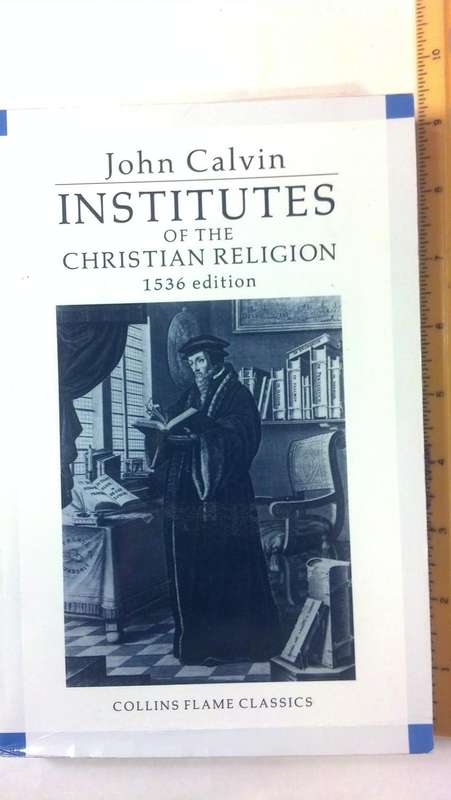
Institutes of the Christian religion (Collins flame classics) - John Calvin
Check my rate
| Main centres: | 1-3 business days |
| Regional areas: | 3-4 business days |
| Remote areas: | 3-5 business days |

| Main centres: | 1-3 business days |
| Regional areas: | 3-4 business days |
| Remote areas: | 3-5 business days |
Institutes of the Christian Religion by John Calvin is one of the most enduring and influential theological works in the history of Christianity. First published in 1536 and expanded in later editions, this monumental work laid the foundation for what would become known as Reformed theology. The Collins Flame Classics edition offers a streamlined, accessible version of this towering classic, making Calvins thought available to a wider audience without compromising the depth and integrity of his original message.
Written as a defense of the Protestant faith and a guide for believers, Institutes covers nearly every major doctrine in Christian theologyfrom the knowledge of God, Scripture, and human sinfulness, to salvation, justification, sanctification, prayer, sacraments, and church governance. Calvins goal was not just to write a textbook, but to help believers grow in their knowledge and love of God, anchored in Scripture and shaped by reverence.
What makes Calvins work so enduring is its balance of rigorous logic, pastoral warmth, and biblical fidelity. He writes with clarity and force, drawing deeply from Scripture and the writings of the early church. Unlike abstract philosophical theology, Institutes was written for real people navigating real spiritual struggles. Calvins deep conviction that God is sovereign and gracious infuses every page with awe and assurance.
This editionpart of the Collins Flame Classics seriesis designed for modern readers. It preserves Calvins essential structure and thought while using updated language and layout to make the text more readable. Though abridged, it retains the richness of Calvins insight and is ideal for students, pastors, or laypeople exploring Reformation theology for the first time.
Theologically, Calvins Institutes is the cornerstone of Reformed theology. It articulates doctrines such as total depravity, unconditional election, and the perseverance of the saints. It is staunchly complementarian, reflecting the ecclesiastical and cultural norms of the 16th century. Calvins treatment of the sacraments, church discipline, and civil government also shaped Protestant practice for centuries to follow.
Far from being a dry academic text, Institutes is a devotional masterpiece. It calls readers to humility, worship, and a God-centered life. For those seeking to understand the Reformation, deepen their theological foundations, or grow in reverence for the majesty of God, Institutes of the Christian Religion remains a vital and transformative readeven nearly 500 years later.